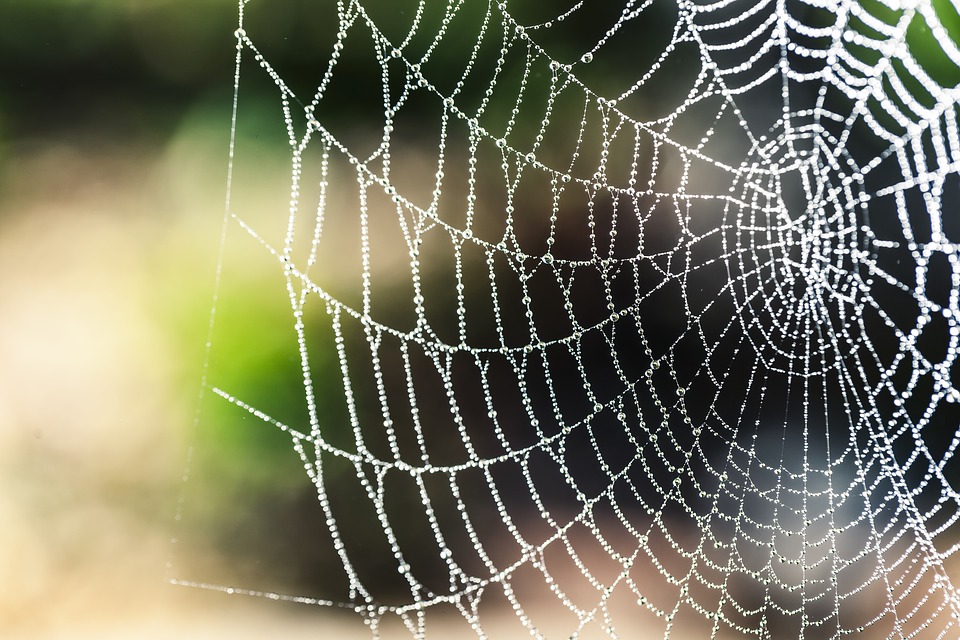STUDY: Fruit from invasive weed found to prevent skin aging
04/03/2023 / By Zoey Sky

Gardeners may balk at the sight of weeds in their garden, but researchers have discovered that an invasive weed common in American backyards can help prevent signs of skin aging.
According to one study, cocklebur plant (Xanthium strumarium) fruits can help reduce damage caused by ultraviolet (UV) rays and hasten up wound healing in lab studies on human cells.
Extracts from cocklebur fruit can also help boost the production of collagen, a protein found in many high-end skincare products that promise to “preserve skin elasticity and prevent wrinkles.”
What is cocklebur?
Cocklebur is a weed native to parts of Asia, Europe and North America. It can be found in moist places such as river banks in agricultural land and other areas.
Cocklebur is commonly used in Traditional Chinese Medicine (TCM) and Native American Medicine to treat different health issues, from minor complaints like a stuffy nose and headaches to arthritis and tuberculosis.
Native Americans used to brew cocklebur leaves to make tea for different conditions, such as kidney diseases, arthritis and tuberculosis. The weed was also used to treat health issues like leprosy, malaria and rabies.
The seeds of cocklebur fruit contain carboxyatractyloside, a potent chemical. It can poison and even kill livestock when consumed.
For humans, eating cocklebur can cause mild symptoms like an unpleasant taste and nausea.
Eating prickly cocklebur can also cause serious symptoms, such as:
- Abdominal pain
- Low blood sugar
- Seizures
- Severe liver injury
- Vomiting
Even though ingesting parts of the plant causes mild and severe side effects, cocklebur fruit and leaves are often used in traditional medicine.

Cocklebur fruit extracts can be used for skin creams
According to researchers from Myongji University in South Korea, extracts from cocklebur fruit can be used as an ingredient for topical skin creams and other cosmetics.
Eunsu Song, one of the researchers and a doctoral candidate at Myongji University, explained that “cocklebur fruit has the potential to protect the skin and help enhance production of collagen.” Song added that the fruit may have a synergistic effect when combined with other effective compounds, such as hyaluronic acid or retinoic acid, against aging. (Related: Top 6 anti-aging superfoods you can add to your diet.)
For the study, the researchers analyzed the molecular properties of cocklebur fruit extracts and isolated compounds that may have antioxidant and anti-inflammatory effects.
They also conducted experiments using cells and a 3D tissue model with properties similar to human skin to learn more about how these compounds affect collagen production, wound healing and damage from UVB radiation, particularly the type that causes skin aging, sunburns and skin cancers.
According to the study findings, cocklebur fruits grown in South Korea have slightly more potent antioxidant and anti-inflammatory properties and greater wound-healing activity compared to fruits grown in China.
Cocklebur shows promise as a cosmetic agent by increasing collagen synthesis. The researchers added that cocklebur showed negative results with higher concentrations.
Superfoods that help promote skin health
While cocklebur fruit isn’t recommended for human consumption, there are superfoods that you can eat to promote skin health. Here are some great anti-aging superfoods to add to your diet:
Avocado
Avocados are a good source of inflammation-fighting fatty acids that can help keep your skin smooth and supple.
Avocados also contain essential nutrients that may prevent skin aging, such as potassium, B vitamins and vitamins A, C, E and K.
Avocados are rich in vitamin A that can help you shed dead skin cells, which leaves you with healthy, glowing skin.
Carotenoids in avocados can also help block toxins and damage from the sun’s rays, at the same time offering protection against skin cancers.
To eat more avocadoes, add them to a salad or your morning smoothie.
Blueberries
Sweet and tangy blueberries are full of vitamins A and C, along with anthocyanins, which are age-defying antioxidants. Anthocyanins give blueberries their beautiful blue color.
These powerful antioxidants may help protect your skin from damage caused by sun exposure, stress and pollution by moderating the inflammatory response and preventing collagen loss.
Blueberries are a low-sugar fruit that you can add to your breakfast smoothie or fruit bowl.
Red bell pepper
Red bell peppers are full of beneficial anti-aging antioxidants.
They are rich in vitamin C, which is good for collagen production, and powerful antioxidants called carotenoids.
Carotenoids have many anti-inflammatory properties and may help protect your skin from sun damage, pollution and environmental toxins.
Slice bell peppers and dip them in hummus as a healthy snack. You can also add bell peppers to a raw salad, or you can add them to a veggie stir-fry.
Papaya
Papaya is full of antioxidants, vitamins and minerals that may help improve skin elasticity and minimize the appearance of fine lines and wrinkles.
Papaya contains:
- B vitamins
- Calcium
- Magnesium
- Phosphorus
- Potassium
- Vitamins A, C, E and K
The antioxidants in papaya can help protect against free radical damage and may delay signs of aging.
Papaya also contains papain, an enzyme that offers additional anti-aging benefits by working as one of nature’s best anti-inflammatory agents. Papain is also found in many exfoliating products.
Drizzle fresh lime juice over a plate of papaya as part of a healthy breakfast.
Watercress
Watercress is full of the following vitamins and minerals:
- Calcium
- Manganese
- Phosphorus
- Potassium
- Vitamins A, B1, B-2, C and K
Watercress acts as an internal skin antiseptic. It helps boost blood circulation and the delivery of minerals to cells, which can boost oxygenation of the skin.
Watercress is full of vitamins A and C, which can neutralize harmful free radicals and help prevent fine lines and wrinkles.
Add watercress to your salad for glowing skin and better overall health.
Visit Superfoods.news to learn more about other anti-aging fruits and vegetables.
Watch the video below to know how jojoba oil and sandalwood seed oil can help promote skin health.
This video is from the Health Ranger Store channel on Brighteon.com.
More related stories:
Increasing your daily intake of fruits and vegetables can truly help you live longer, reveals study.
8 Science-backed health benefits of vitamin K.
Study: Following a balanced diet and practicing healthy habits can help slow age-related memory loss.
Sources include:
Submit a correction >>
Tagged Under:
aging secrets, alternative medicine, anti-aging, cocklebur, Cosmetics, food is medicine, food science, fruits, health science, herbal medicine, Herbs, ingredients, natural health, organics, plant medicine, prevention, remedies, research, skin health, Veggies, weeds
This article may contain statements that reflect the opinion of the author




















